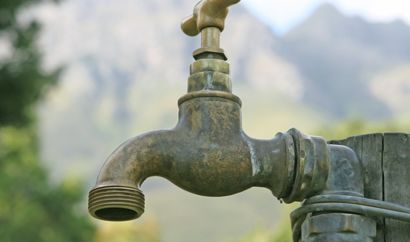
Sanitary Sewer: Whose Responsibility Is it if it Breaks?
By | September 16, 2021.
Every property needs some form of a sewage and sanitation system. Not only is this mandatory by building codes, but it’s just generally a good idea when you consider that there will eventually come a time where someone will probably need to use the restroom. Indoor plumbing is one of those things that we have come to more or less expect and demand from buildings, and toilets, sinks, showers, tubs, and plenty of other plumbing components all require some sort of a connection to one of these sanitation systems.
However, sewer lines and sewage treatment systems can break, resulting in serious or even catastrophic damage when one does. But who is responsible for this damage when one does break down? Believe it or not, it might not be who you think. This blog will go over sewer repairs in greater detail and discuss who is responsible for fixing problems in a few different situations.
Situation 1: Your Sewer Line Breaks
Your sewer main is the trunk of the tree that is your sanitation system. Every drain in your home eventually leads to your main sewer line, and your sewer main carries all of this collected waste out to the public sewer or to the septic tank system on your property. Because it is generally contained entirely within your property and your actions affect it almost exclusively, most sewer line problems are considered the responsibility of the property owner.
For those who own their own home, this means the repair would fall on you to complete (and in some cases, you might be forced to complete the repair quickly to avoid damaging other properties or violating homeowners association rules). However, for multi-family residential or even some commercial properties, sewer line problems will still fall on the shoulders of the property owner, and that means the landlord will generally be responsible for the fix.
The same principle applies to septic tanks. Because they are an integral part of your sewage treatment and sanitation, they are your responsibility to maintain and take care of. This is why pumping and regular inspections are such an important part of owning a property that depends on one of these systems. Even small problems can have far-reaching consequences, so it’s important to fix any problems as soon as you discover them.
Situation 2: Your Sewer Line Is Blocked by a Tree Root
Tree roots are a sworn enemy of sewer lines. Because these lines often contain a ton of sewage that trees use as nutrients, a single, tiny tree root can quickly grow to the point where it completely blocks or even destroys a sewer line completely. In this instance, the liability for the tree root falls on the owner of the property where the tree in question resides. This can complicate things, particularly with older, bigger trees that might have roots that stretch quite a long way. It isn’t impossible for a tree in one person’s yard to spread its roots and find its way into a neighbor’s sewer line.
Situation 3: Your Sewer Line Collapses Beneath a Sidewalk
It isn’t all that rare or abnormal to have a publicly maintained sidewalk or walkway running through your property, particularly if your home is located in a master-planned neighborhood or larger housing development. The good news is that damaged sidewalks are generally someone else’s responsibility (either the neighborhood developer or the city/county/principal form of local government). The bad news is that a damaged sidewalk could cause serious damage to your sewer line in the event of an accident. In this instance, the liability for the damage to your sewage and sanitation system would fall to whoever is responsible for maintaining the sidewalk. While the good news is that you won’t have to bear the ultimate financial responsibility, the bad news is that you might not have a lot of control over your repair project’s timeline.
Situation 4: A Public Sewer Main Breaks
Finally, a sewage spill may occur as a result of a sewer main breaking. These are generally pretty easy to differentiate from a sewer problem in an average property typically because the sewage will most likely be coming from the street closest to a particular property (public sewer lines are typically run under roadways for ease of access and to prevent sinkholes). While this is a serious problem that should be treated with urgency, the good news is that whoever is responsible for the sewage system is responsible for the repair. In most cases, that would be your local government. Typically, you pay a bill every month for sewage disposal and management as a part of your utilities, and those costs typically go into maintaining and repairing sewer lines when issues emerge.
If you have a problem with your sewage system, choose the team at The Plumbing Experts! Dial (864) 210-3127 now to request urgent service and let us get started.








